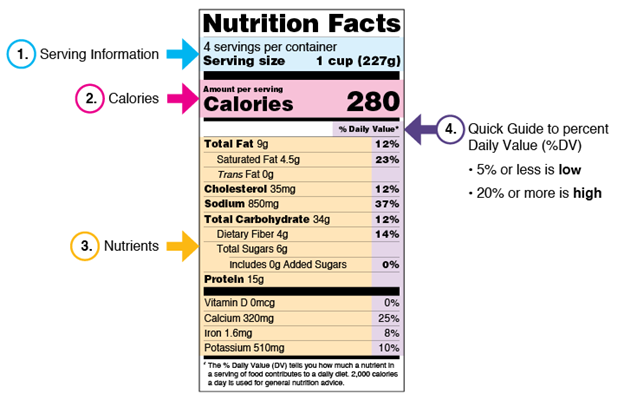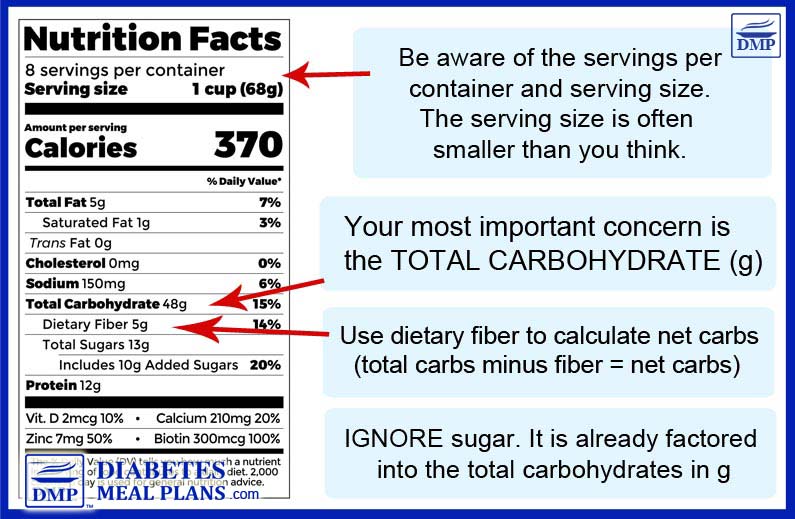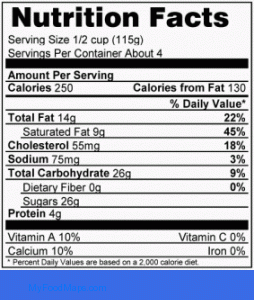what does total carbohydrates mean on a nutrition label How many grams of carbohydrate equal 1 g of sugar : what does a gram of
Today, we are going to talk about a topic that many people are curious about: how many grams of carbohydrate equal 1 gram of sugar? Carbohydrates and sugar are two terms often used interchangeably, but they are not exactly the same thing. Understanding the relationship between the two can help us make informed dietary choices.
What Does a Gram of Carbohydrate Actually Mean?
Before we dive into the conversion between grams of carbohydrate and sugar, let’s first clarify what a gram of carbohydrate represents. Carbohydrates are one of the three macronutrients that provide energy to our bodies, alongside proteins and fats. Each gram of carbohydrate contains approximately 4 calories of energy.
Carbohydrates can be found in various forms, including sugars, starches, and fibers. They are present in many common foods such as fruits, vegetables, grains, legumes, and dairy products. While carbohydrates are an essential part of a balanced diet, it is crucial to choose complex carbohydrates that provide more nutrients and fiber rather than simple sugars.
The Relationship Between Carbohydrate and Sugar
Sugar is a type of carbohydrate. However, not all carbohydrates are sugars. While sugar is a simple carbohydrate that provides a quick source of energy, complex carbohydrates, such as whole grains and vegetables, provide sustained energy and essential nutrients. It is important to distinguish between these two types of carbohydrates when considering their impact on our health and well-being.
How Many Grams of Carbohydrate Equal 1 Gram of Sugar?
The conversion from grams of carbohydrate to grams of sugar depends on the specific type of carbohydrate being considered. Different carbohydrates have varying degrees of sweetness and compositions. However, as a rough estimate, one gram of sugar is roughly equal to four grams of carbohydrates.
It’s important to note that this conversion ratio is an estimation and not an exact science. The actual conversion may vary based on the specific sugars and carbohydrates involved. Additionally, natural sugars found in whole foods, such as fruits, are generally accompanied by additional nutrients and fiber, which can affect their impact on blood sugar levels.
The Importance of Monitoring Carbohydrate Intake
Understanding the relationship between carbohydrates and sugar can be helpful, especially for individuals who need to monitor their carbohydrate intake due to medical conditions, such as diabetes or obesity. It is essential to consult with a healthcare professional or a registered dietitian to determine the appropriate amount of carbohydrates and sugars to include in your diet.
 How Many Carbs Should You Eat a Day to Lose Weight?
How Many Carbs Should You Eat a Day to Lose Weight?
Now that we have a better understanding of the relationship between carbohydrates and sugar, let’s discuss how many carbs you should consume daily for weight loss purposes. The ideal carbohydrate intake for weight loss varies depending on individual factors such as age, sex, weight, and activity level.
As a general guideline, many health professionals recommend a balanced diet that consists of approximately 45-65% of daily calories from carbohydrates. However, for weight loss, it is often recommended to aim for the lower end of this range, around 45-50%, and focus on consuming primarily complex carbohydrates from whole food sources.
 It is important to note that weight loss is a multifactorial process and cannot be solely achieved by manipulating carbohydrate intake alone. A comprehensive approach that includes a well-balanced diet, regular physical activity, and behavioral changes is key to achieving sustainable weight loss.
It is important to note that weight loss is a multifactorial process and cannot be solely achieved by manipulating carbohydrate intake alone. A comprehensive approach that includes a well-balanced diet, regular physical activity, and behavioral changes is key to achieving sustainable weight loss.
In conclusion, understanding the relationship between carbohydrates and sugar is crucial for making informed dietary choices. While sugars are a type of carbohydrate, not all carbohydrates are sugars. The conversion between grams of carbohydrates and sugar can vary, but as a rough estimate, one gram of sugar is equal to approximately four grams of carbohydrates.
When it comes to weight loss, it is recommended to focus on consuming primarily complex carbohydrates from whole food sources and to consult with a healthcare professional or registered dietitian for personalized guidance. Remember, achieving and maintaining a healthy weight is a journey that requires a holistic approach.
If you are searching about How Many Carbs Should You Eat a Day to Lose Weight? [Aug 2021] you’ve came to the right place. We have 5 Images about How Many Carbs Should You Eat a Day to Lose Weight? [Aug 2021] like How Many Carbs Should You Eat a Day to Lose Weight? [Aug 2021], Are Carbohydrates Important in Your Diet? - Step To Health and also How Many Grams Of Carbohydrate Equal 1 G Of Sugar : What Does A Gram Of. Read more:
How Many Carbs Should You Eat A Day To Lose Weight? [Aug 2021]
![How Many Carbs Should You Eat a Day to Lose Weight? [Aug 2021]](https://blog.nasm.org/hubfs/image-png-Aug-06-2021-09-40-12-75-PM.png) blog.nasm.orgnutrition fda carbs labeling percent nutrient lasagna lose serving saturated servings informed teks calculating
blog.nasm.orgnutrition fda carbs labeling percent nutrient lasagna lose serving saturated servings informed teks calculating
Are Carbohydrates Important In Your Diet? - Step To Health
 steptohealth.comcarbohydrates examples
steptohealth.comcarbohydrates examples
Carbs Vs Sugar: What Should I Focus On With Type 2 Diabetes?
 diabetesmealplans.comvs carbs carbohydrate sugars carb diabetesmealplans
diabetesmealplans.comvs carbs carbohydrate sugars carb diabetesmealplans
How Many Grams Of Carbohydrate Equal 1 G Of Sugar : What Does A Gram Of
jesakaahling.blogspot.comcarbohydrate
What Do Total Carbohydrate And Added Sugar On The Nutrition Label Mean
 eatouteatwell.comnutrition total label mean sugar carbohydrates carbohydrate added facts there nutritional downright confusing trying labels figure number
eatouteatwell.comnutrition total label mean sugar carbohydrates carbohydrate added facts there nutritional downright confusing trying labels figure number
Carbs vs sugar: what should i focus on with type 2 diabetes?. What do total carbohydrate and added sugar on the nutrition label mean. Nutrition fda carbs labeling percent nutrient lasagna lose serving saturated servings informed teks calculating